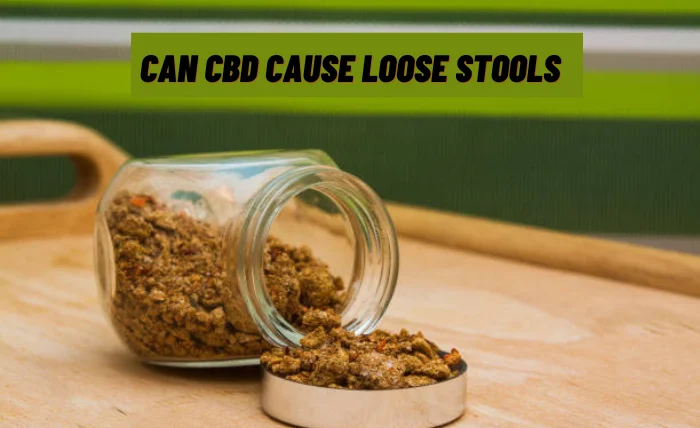In the ever-evolving landscape of health and wellness, CBD has emerged as a beacon of hope for many, promising relief from anxiety, pain, and insomnia. Yet, amidst its glowing accolades, a curious question arises: Can CBD cause loose stools? This intriguing inquiry not only sheds light on the lesser-discussed aspects of CBD consumption but also underscores the importance of understanding our bodies’ reactions to natural supplements.
With a commitment to unraveling the truths behind CBD’s effects, this exploration aims to demystify the connection between CBD and digestive health, offering readers a clear, concise, and credible insight into what might be an unexpected side effect.
Stay tuned as we delve into the heart of the matter, ensuring you’re well-informed and ready to make the best decisions for your wellness journey.
Curious about CBD? Can Cbd Cause Loose Stools

CBD, short for Cannabidiol, is a naturally occurring compound found in the cannabis plant. Unlike its cousin THC, CBD doesn’t cause a high sensation. It’s extracted from both hemp and marijuana plants, but there’s a key difference: hemp-derived CBD contains minimal THC, while marijuana-derived CBD may have higher levels. CBD comes in various forms, including oils, edibles, topicals, and supplements, each offering unique benefits for health and wellness.
What is CBD?
CBD, or Cannabidiol, is a compound found in the cannabis plant. It’s one of over 100 cannabinoids identified in cannabis. Unlike THC, CBD is non-intoxicating, meaning it doesn’t produce the euphoric sensation associated with marijuana use.
Instead, it’s prized for its potential therapeutic benefits, including pain relief, anxiety reduction, and inflammation reduction. Research suggests that CBD interacts with the body’s endocannabinoid system, helping to regulate various physiological functions.
Common Sources of CBD: Hemp vs. Marijuana
CBD can be sourced from both hemp and marijuana plants, which are both varieties of the cannabis plant. Hemp-derived CBD contains high levels of CBD and trace amounts of THC (less than 0.3%), making it legal in many regions and unlikely to cause intoxication.
On the other hand, marijuana-derived CBD may contain higher levels of THC, which can vary depending on the strain and extraction method. This key difference in THC content impacts the legality and psychoactive effects of CBD products.
Overview of CBD Products: Oils, Edibles, Topicals, and Supplements
CBD products come in various forms to suit different preferences and needs. CBD oils are popular for their versatility and fast-acting effects when administered sublingually. Edibles, such as gummies and capsules, offer a convenient way to consume CBD discreetly.
Topical products, like creams and balms, are applied directly to the skin for localized relief from pain and inflammation. CBD supplements, available in pill or powder form, provide a convenient way to incorporate CBD into your daily routine.
How CBD Works
The endocannabinoid system, or ECS, is a complex network of receptors found throughout the body. It helps regulate functions like mood, sleep, appetite, and immune response.
CBD interacts with the ECS by binding to cannabinoid receptors, specifically CB1 and CB2 receptors. This interaction influences the release of neurotransmitters and helps maintain balance, or homeostasis, within the body.
The Endocannabinoid System and Its Role in the Body
The ECS consists of endocannabinoids, cannabinoid receptors, and enzymes that break down endocannabinoids. Endocannabinoids are produced by the body and act as signalling molecules, helping regulate various processes.
Cannabinoid receptors are found on the surface of cells throughout the body and play a key role in transmitting signals. Enzymes like FAAH and MAGL help break down endocannabinoids once they’ve served their purpose.
How CBD Interacts with the Endocannabinoid System
CBD interacts with the ECS in several ways. It can inhibit the breakdown of endocannabinoids, allowing them to remain active for longer periods. CBD also modulates the activity of cannabinoid receptors, sometimes acting as an agonist (activating receptor) or antagonist (blocking receptor). Additionally, CBD influences other receptors and neurotransmitter systems in the body, contributing to its diverse effects.
Potential Effects of CBD on the Body
CBD’s interaction with the ECS can produce a range of effects, including relaxation, pain relief, and reduced inflammation. It may also help alleviate symptoms of anxiety, depression, and insomnia.
Some studies suggest that CBD may have potential benefits for digestive health, although more research is needed to fully understand its effects on gastrointestinal function. Overall, CBD’s impact on the body is complex and varies depending on factors like dosage, individual biology, and product quality.
Curious about the digestive effects of CBD?
The evidence is essential. By examining scientific studies, anecdotal evidence, and potential side effects, we can gain a clearer understanding of CBD’s impact on digestive health.
Can CBD Cause Loose Stools? Exploring the Evidence
To answer this question, we’ll examine various factors, including dosage, product quality, and individual differences in response to CBD. By exploring both scientific research and personal experiences, we can paint a comprehensive picture of CBD’s effects on digestive function.
Overview of Digestive Side Effects Associated with CBD
While CBD is generally well-tolerated, some individuals may experience digestive discomfort, such as diarrhea or loose stools. These side effects are typically mild and transient, but they can occur, especially with higher doses or lower-quality CBD products.
Scientific Studies and Research Findings on CBD and Digestive Health
Several studies have investigated the relationship between CBD and digestive function. While research is still ongoing, some evidence suggests that CBD may have potential benefits for conditions like irritable bowel syndrome (IBS) and inflammatory bowel disease (IBD). However, more research is needed to fully understand CBD’s effects on digestive health.
Factors That May Contribute to Loose Stools When Taking CBD
Curious about CBD’s potential side effects? Let’s dive into some basic strategies to address the possibility of CBD causing loose stools.
Dosage Considerations and Their Effects on Digestion:
Determining the right CBD dosage is crucial for avoiding digestive issues. Starting with a low dose and gradually increasing can help your body adjust without overwhelming your digestive system. Monitor how your body reacts and adjust accordingly.
The Role of Carrier Oils in CBD Products:
Carrier oils, like MCT oil or hemp seed oil, are commonly used in CBD products to enhance absorption. However, some individuals may be sensitive to certain oils, which could contribute to digestive discomfort. Opt for products with easily digestible carrier oils or consider alternative delivery methods like capsules or edibles.
Possible Interactions with Other Medications and Supplements:
CBD can interact with certain medications and supplements, potentially affecting digestion. It’s essential to consult with a healthcare professional before incorporating CBD into your routine, especially if you’re taking other medications. They can help you identify any potential interactions and adjust your regimen accordingly.
Quality and purity of CBD products
When choosing CBD products, prioritize quality and purity. Look for products that undergo third-party testing to confirm their potency and purity. This ensures that you’re getting a reliable and safe product that’s less likely to cause digestive issues.
Preventing and Managing Loose Stools When Using CBD
To prevent or manage loose stools when using CBD, start with a low dosage and gradually increase it over time. This allows your body to adjust to the CBD gradually, reducing the likelihood of digestive upset. Additionally, consider taking CBD with food to help improve its absorption and minimize any potential gastrointestinal effects.
Tips for starting with low dosages and gradually increasing
Starting with a low dosage of CBD and gradually increasing it can help minimize the risk of digestive issues. Begin with the lowest recommended dosage for your specific product and monitor how your body responds. If you experience any discomfort, scale back the dosage and slowly increase it as tolerated.
The importance of selecting high-quality CBD products
Opting for high-quality CBD products is essential for minimizing the risk of digestive problems. Choose products from reputable brands that prioritize quality control and transparency. Look for products that are made with organic hemp and free from harmful additives or contaminants.
Consulting healthcare providers before starting CBD
Before incorporating CBD into your routine, consult with a healthcare provider, especially if you have pre-existing digestive issues. They can provide personalized advice based on your medical history and help you determine the most suitable dosage and formulation of CBD. Additionally, they can advise on potential interactions with any medications you may be taking, reducing the risk of adverse effects.
Bottom Line
While CBD holds promise for various health benefits, it’s essential to acknowledge the potential for digestive side effects such as loose stools. By understanding factors like dosage, product quality, and individual tolerance, individuals can mitigate these risks. Consulting healthcare providers before starting CBD, especially for those with pre-existing digestive issues, is crucial for personalized guidance. Overall, while the question “can CBD cause loose stools” persists, informed decision-making and cautious usage can help ensure a positive CBD experience.






